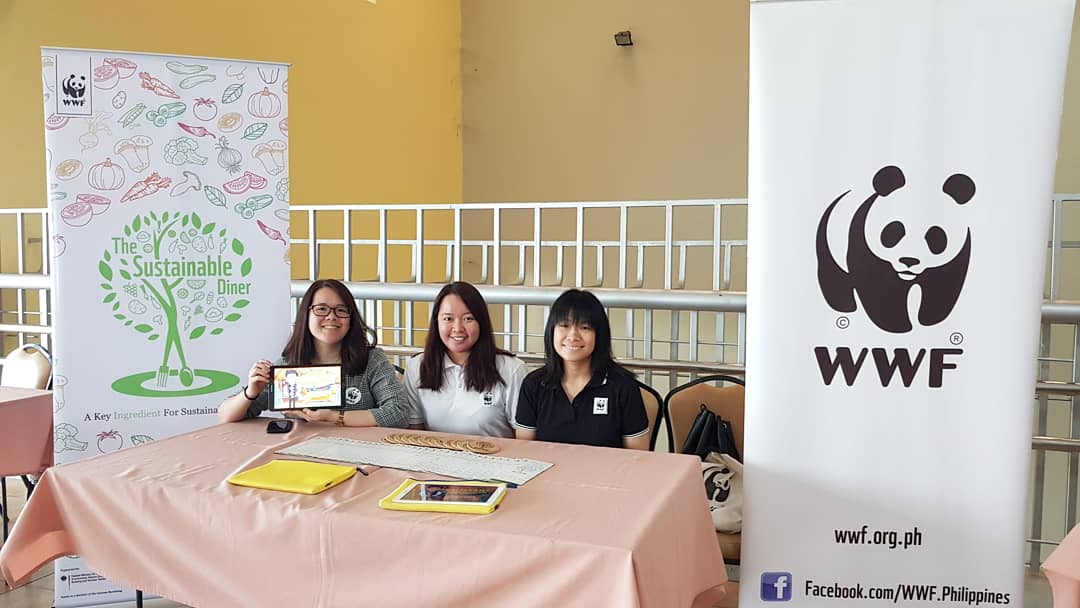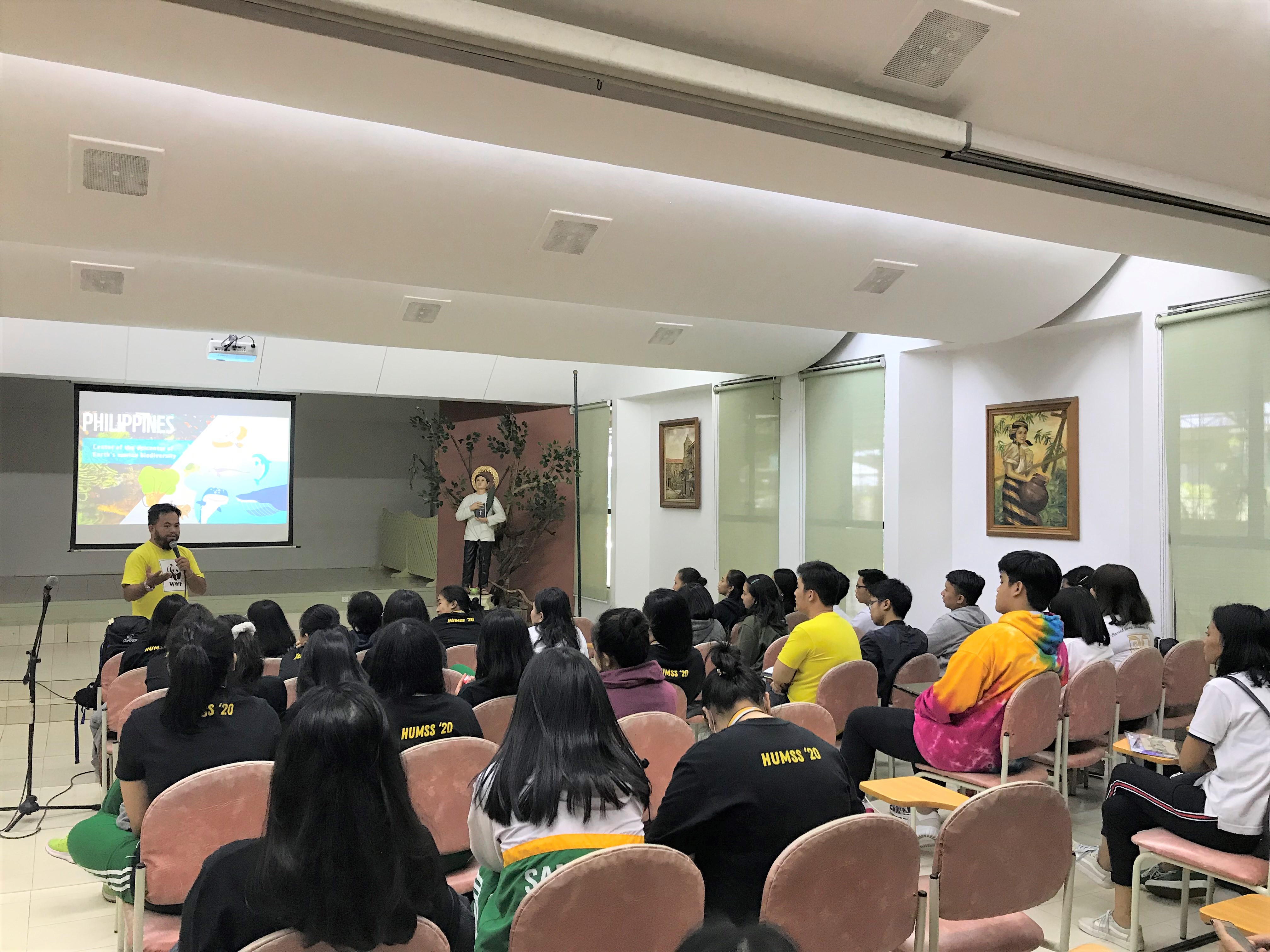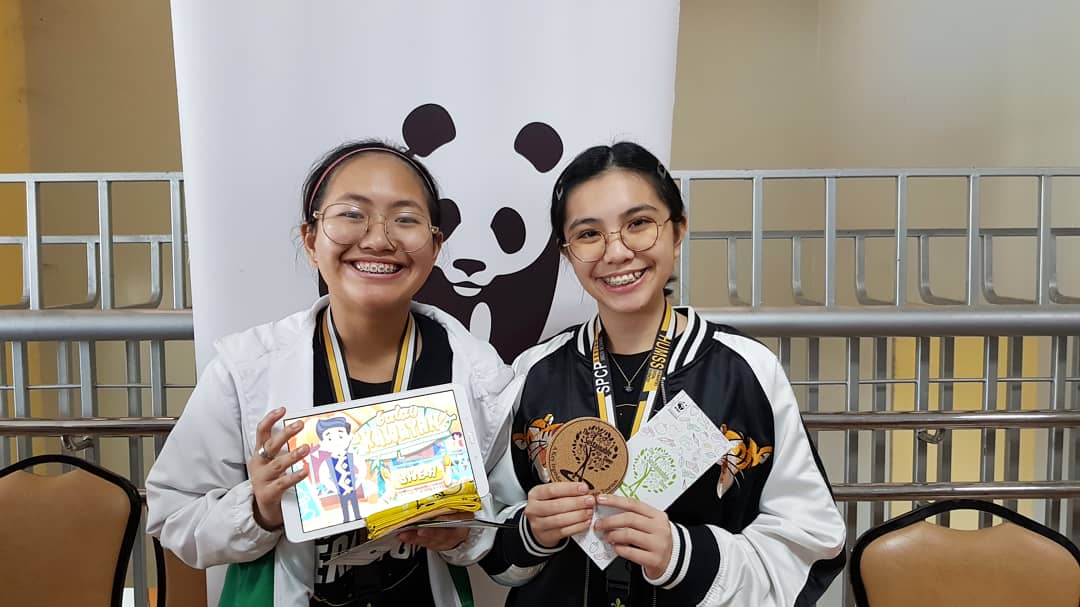The Sustainable Diner at St. Paul College Pasig’s HUMSS Congress 2019
February 2019

Representatives from The Sustainable Diner project and Environmental Education team manning WWF-Philippines’ booth at the HUMSS Congress 2019.
Photo © Pamela Luber / WWF-Philippines
Last February 27, 2019, World Wide Fund for Nature (WWF) Philippines’ The Sustainable Diner: A Key Ingredient for Sustainable Tourism project, as well as its Environmental Education Unit, were invited to take part in the Humanities and Social Sciences (HUMSS) Congress 2019 at St. Paul College Pasig. This year’s HUMSS Congress, with the theme “Bakbakan: Kabataang Kaakibat sa Diyalogong Pilipino”, gathered Grade 11 and 12 students from different public and private high schools in Metro Manila to aid the nation’s next generation in becoming critical thinkers and in using the principles of the humanities in shaping their futures and the future of their society.

Dino Calderon, Program Manager of WWF-Philippines’ Environmental Education Unit, talks about the abundance of natural resources and biodiversity in the Philippines.
Photo © Jonna Jacinto/ WWF-Philippines
Dino Calderon, WWF-Philippines’ Project Manager for Environmental Education, was one of the invited speakers for the event, along with representatives from other notable NGOs such as World Vision, Childhope, and Virlanie Foundation. During his talk, he shared with the audience a great deal of information about the Philippines’ environmental landscape as well as our country’s role as a megadiverse biodiversity hot spot. He also shared how WWF-Philippines, through its environmental education program, provides an experiential learning platform for the Filipino youth so that they gain appreciation for the country’s wildlife and natural resources.

Students from St. Paul College Pasig played the Balay Kawayan game and won prizes for getting a low carbon footprint receipt.
Photo © Pamela Luber / WWF-Philippines
The Balay Kawayan game was also introduced to the students at the WWF booth. The participating students were able to simulate a normal restaurant dining experience while at the same time learning the environmental effects of what they eat and how they eat through their very own carbon footprint receipts.
The Sustainable Diner would like to thank the HUMSS students of St. Paul College Pasig for allowing WWF-Philippines to share our advocacies on sustainable dining and environmental education with the attendees of the third run of its HUMSS Congress. When we work with the Filipino youth and empower them to think critically, we are enabling the next generation to positively impact their societies and the environment in the future!
The Sustainable Diner project, under WWF-Philippines’ Sustainable Consumption and Production, is part of the International Climate Initiative (IKI). The Federal Ministry for the Environment, Nature Conservation, and Nuclear Safety (BMU) supports this initiative on the basis of a decision adopted by the German Bundestag.
